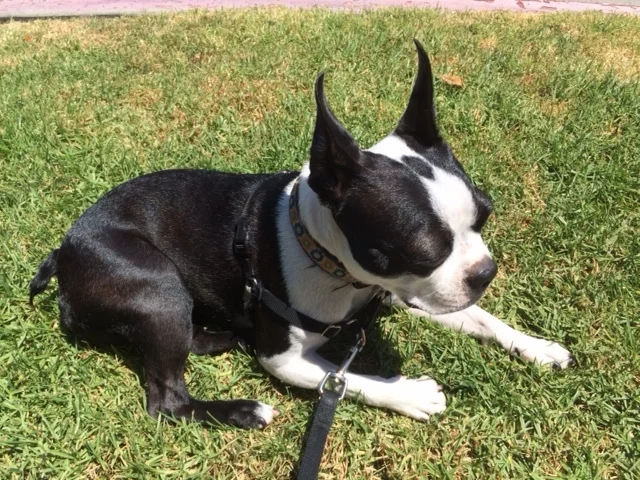Some of the fondest memories I have of my dad are the times he changed his plans to do special things with me when I was a kid.
One Saturday, he chose to stay home and build a wooden boat with me rather than play golf with his buddies. Our living room full of guests once had to wait for half an hour for my dad while he regaled me with bedtime stories about the time he ran away from home and lived with hobos during the depression.
There were the not-so-good memories, too: the yelling when I spilled milk, the sarcastic smirk when I handed him the wrong tools, the long stretches of time he spent away from home on business.
For better or worse, these events are woven into the tapestry of my relationship with dad. Many decades later, my dad and I were able to process these seminal events together, make amends and distill what remained into the fine spirits of the present.
In last week’s blog, we talked about how healthy it is for us to talk to our pets. For our pets, it’s not so much about the words we say as it is the fact that we are at our most vulnerable when we are with them.
There is evidence that certain pets - especially dogs - have episodic memory; they remember specific events - good or bad - and have feelings attached to them. They also know whether or not their humans really have any interest in them on a day-to-day basis. Over time, they learn how invested we are by how we engage them.
Do we greet them happily at the door when we come home or do we pass them in a huff, drop our insufferable load on the floor, plop down on the couch and tune out everything but mind-numbing cable T.V.?
Of course, we all have our moments and moods as well as a finite amount of energy in a given day. We cannot be available to everyone in the family all of the time. Nor should we be. At some point, we all need to replenish our personal “wellspring” for our own sake as well as the ones we love. As we’ve learned, our pets even benefit from alone time.
Having all of us all the time is not what our fur kids want or need from us. Just a few minutes of cuddling, learning a new command or a playing a “shell” game can make the difference between a perky, well-adjusted pet and a sulking mound of depression.
Whether we’re talking about humans or pets, the connection between disposition and good health is undeniable. Happy pets flourish. Depressed pets are more susceptible to disease and can develop behavioral problems.
Lilly, our Boston terrier, has rarely been in need of urgent, medical attention. I believe this is partly because my wife and I carve out special time each day to focus on her.
Perhaps because of this, Lilly has gotten good at asking for what she wants.
After working on this blog for an hour or so, I looked up to find Lilly looking earnestly at me. I detached from this parsing of words and we took a brief walk. On the way back home, Lilly found her favorite patch of grass and stretched out. Like Samantha on Bewitched, she twitched her nose and drew in a magical banquet of scents. Her eyelids closed to slits. I sat on our shady stoop and exhaled.
I know at least two good fathers.

